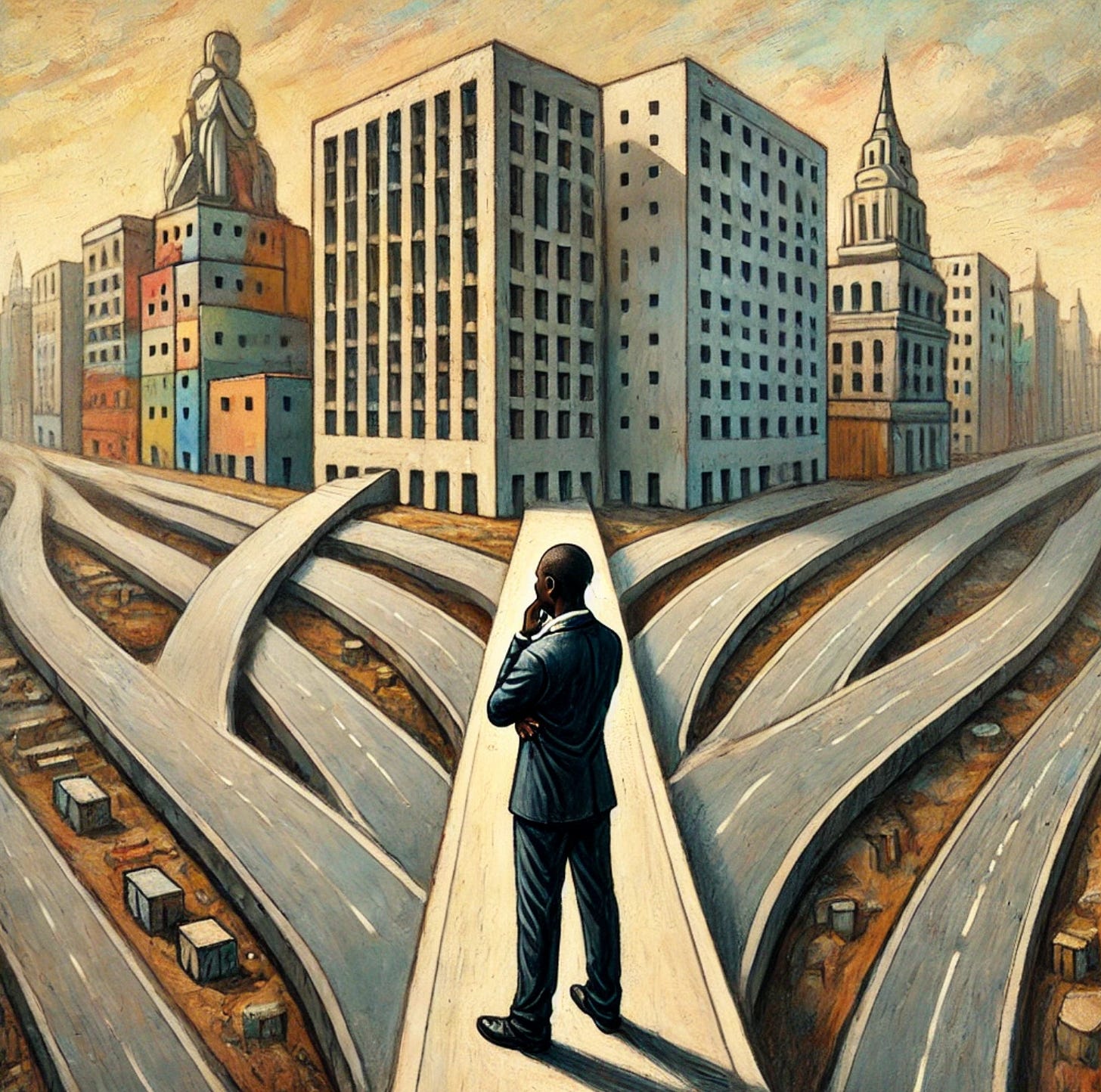On May 29th 2023, Nigeria’s newly elected President Bola Tinuba rose to give his inaugural address in a packed square in Abuja. “The fuel subsidy is gone”, he declared. In those five words President Tinuba ended a harmful distortion to the economy, freeing up much needed cash for more productive purposes than paying people to idle in traffic.
For myriad reasons Nigeria has long failed to gain the requisite wealth from its oil reserves. Civil war, terrorism, theft, and mismanagement have all played a role. However, since the mid-1970s Nigeria has also heavily subsidised petrol. By 2022, the subsidy cost the public purse over US$10 billion a year, with around 40% of government revenue going to fuel subsidies. Few economists or policymakers thought this was a good idea. The Economist certainly never tired of telling Nigeria to cut the subsidy forthwith and castigating Presidents who tried and then reneged (which was several of them).
Getting rid of this subsidy would be a clear policy win. Only it wasn’t.
In the face of spiralling inflation, in part due to surging petrol prices, President Tinubu has reinstated the subsidy. The incomparable Ken Opalo puts the failure of this reform to stick, at least partially, down to the government trying too many things. Other (familiar) commentators agree.
So much to do, so little time
The governments of poor countries face an almost impossible job. Siviwe Gwarube, the incoming Minister of Basic Education of the new South African government would love to have the To Do list of newly minted UK Secretary of State for Education, Bridget Phillipson. And what’s true in the education or energy departments is true for the whole of government. Where resources are tight, but the needs are great, focusing energy and that valuable political will is vitally important. Sometimes the eggs really do need to go in one basket. The problem is, there are a lot of worthy baskets.
Long term gadfly of the progressive left, Bjorn Lomborg recently published Best Things First: The 12 most efficient solutions for the world’s poorest and our global SDG promises. Mr Lumberg suggests the 12 best global investments to be tackling:
Tuberculosis
Maternal and newborn health
Malaria
Nutrition
Chronic diseases
Childhood immunization
Education
Agricultural R&D
e-procurement
Land tenure security
Trade
Skilled migration
All sound ideas and we are not here to debate the merits of each one or make a case for something else. Many of Mr Lomborg’s list would be at least partially tackled at a supra-national level. But ultimately it will be national or sub-national governments implementing programs and rolling out strategies.
Unfortunately, not even those paragons of state governance, the Scandinavians, could hope to deal with more than one or two of them at a time. Even with all the ‘political will’ in the world – an oft quoted precondition of success – Malawi has even less chance of successfully tackling multiple.
Somewhat unhelpfully Mr Lomborg doesn’t prioritise amongst the dozen best things he has suggested.
Just put one foot in front of the other
State capacity matters. Only anarchists would argue that the right size of the state is non-existent. At a minimum the government must have a monopoly on violence; something too many countries around the world have not yet achieved. From there, the delivery of services from road building to end-of-life care only gets more complicated. But the countries with the most pressing problems have the least resources with which to deal with them.
On May 29th last year as Mr Tinubu was proofreading the speech he was about to give, Boko Haram continued to torment the Northern reaches of his country. Fulani pastoralists and Hausa farmers continued to have deadly clashes in the middle belt. And sea level rise continued batter the low-lying Niger delta and coastal communities in the Gulf of Guinea. Mr Tinubu had some challenges.
The moral of our story is to pick one thing and stick to it. If President Tinubu wanted the fuel subsidy gone, he would have had to put 100% of his government behind it which doesn’t leave a lot behind for much else. Try and do several complicated things at once and you’ll end up doing none. The hard thing is that to achieve success in one critical area is not just a case of putting political will into it. It’s that you then need to have the political will to say ‘not right now’ to even the worthiest of things in another critical area. Given the challenges facing governments of low- and middle-income countries, that’s a tough ask.



